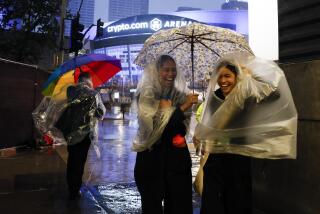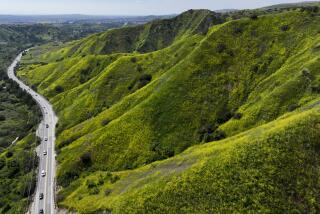The Oscars red carpet may be a little wet on Sunday, but California’s winter continues to be dry
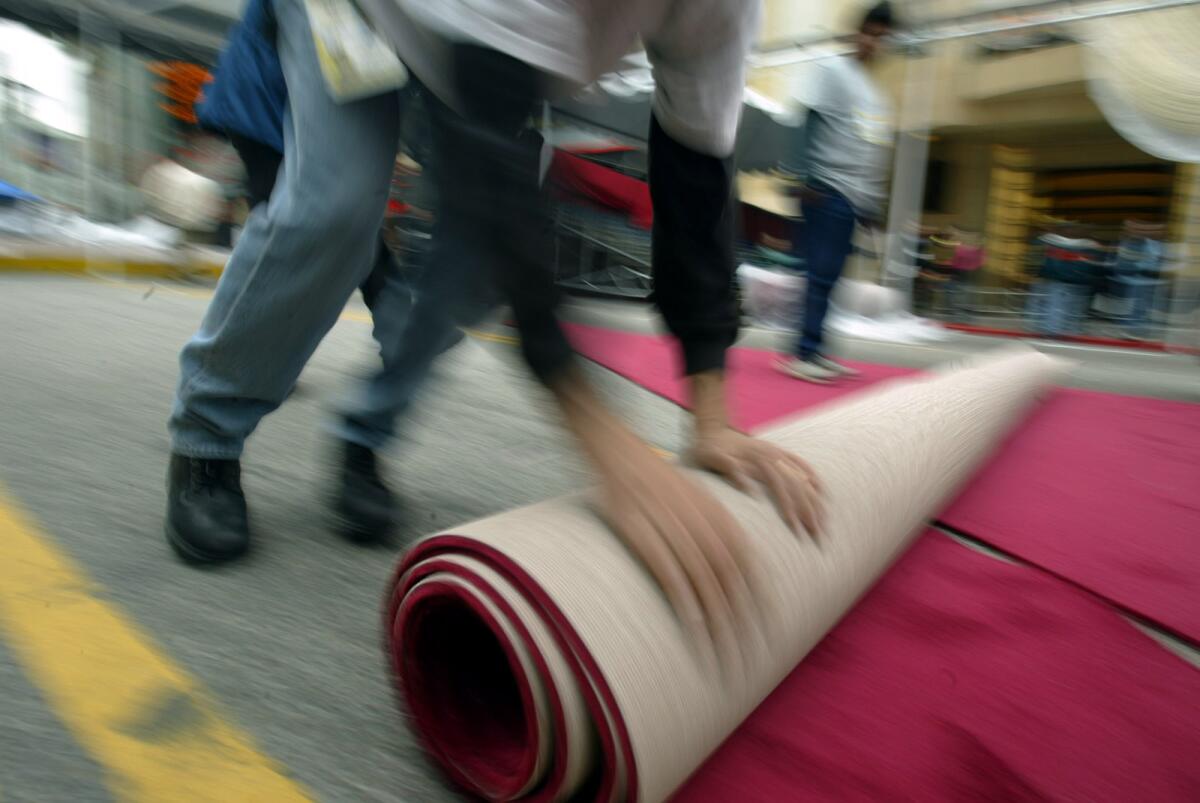
- Share via
There’s a chance of showers in the Los Angeles area on Sunday afternoon and evening, according to the National Weather Service, so skies over Hollywood and the Academy Awards ceremony are likely to be overcast and drippy.
The marine layer will deepen Saturday night and Sunday morning with widespread low clouds for the coast and valleys, but there probably won’t be much moisture in this system, said Curt Kaplan, a meteorologist with the weather service in Oxnard. The models aren’t in agreement on much, but they agree on that.
With the exception of December, this means the rainfall season will continue to be disappointing in most of California, and the prospects that the state will get back to normal by June 30 — end of the season — are not promising, as Jan Null of Golden Gate Weather Services points out.
February is usually the wettest month of the year in California, but extended outlooks indicate that for the foreseeable future — at least into late February — the state will have below-normal precipitation.
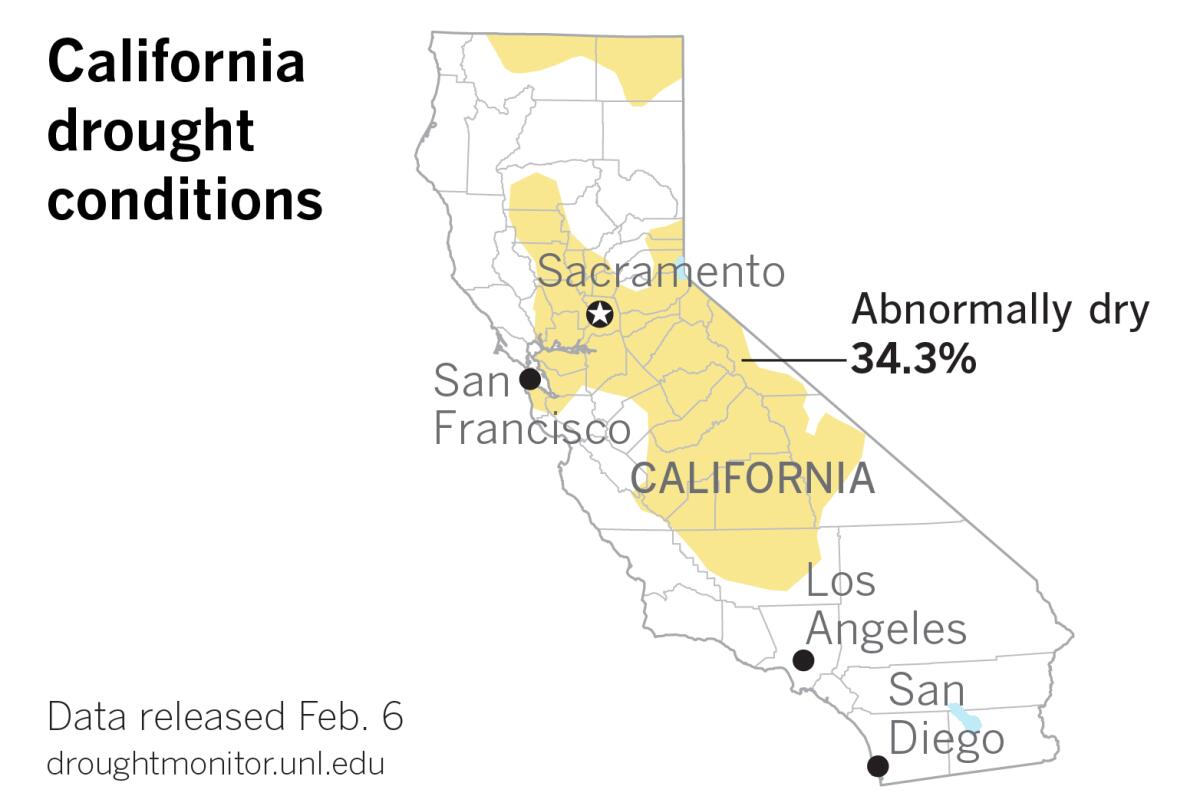
The latest Drought Monitor, released Thursday, continues to show a little more than a third of the state as abnormally dry. But that’s not even the whole story, climatologist Bill Patzert said.
“Drought is more than recent snowpack and rainfall,” Patzert said. “Groundwater levels are dangerously low in many areas. Without more winter rain and snow, we could easily slip back into drought.”
The eight-station Northern Sierra Index stood at 68% of seasonal normal as of Tuesday. The index is the average of eight precipitation measuring sites that provide a representative sample of the northern Sierra’s major watersheds. These watersheds include the Sacramento, Feather, Yuba and American rivers. These rivers flow into some of California’s biggest reservoirs, providing a large portion of the state’s water supply.
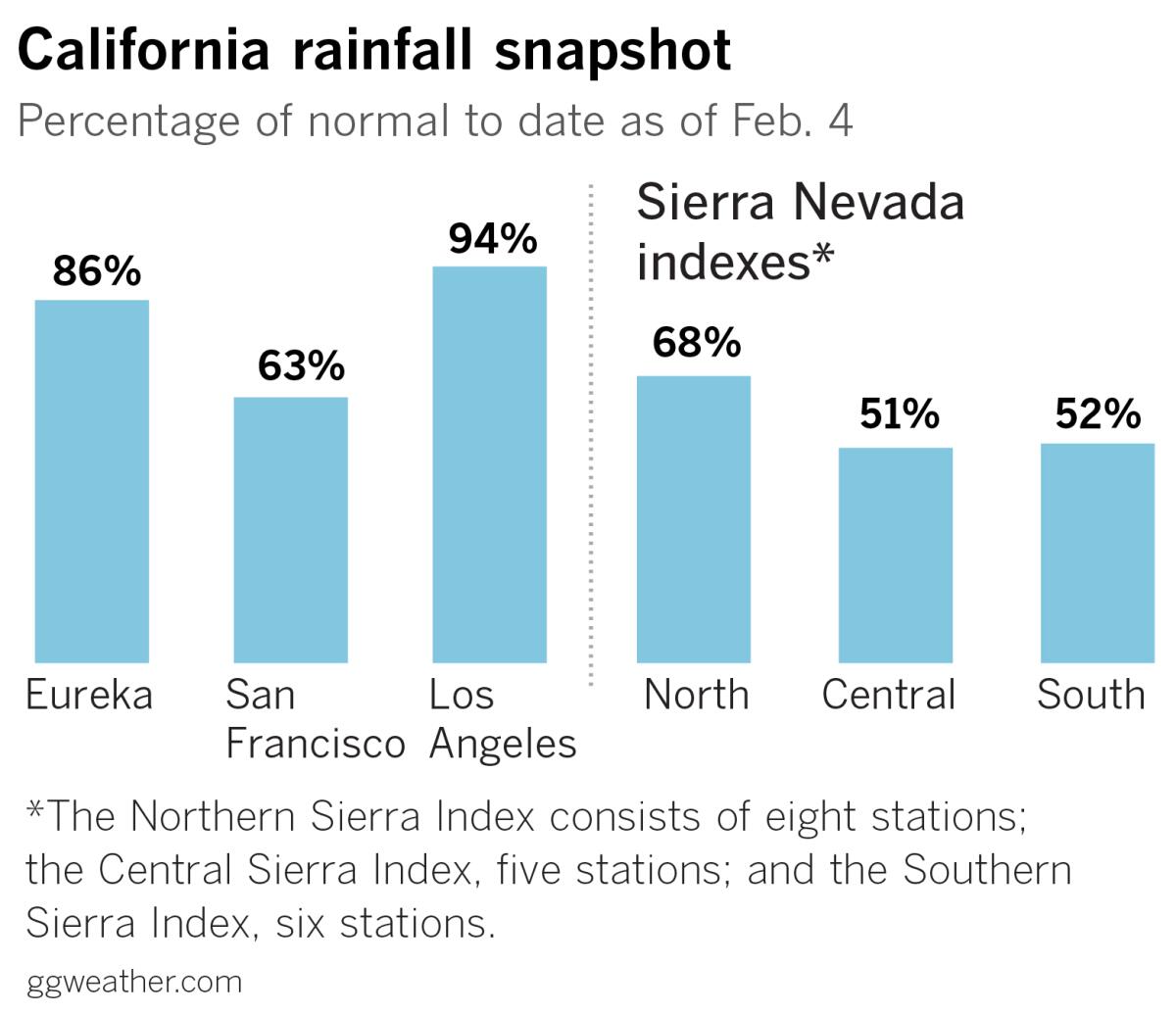
As of Tuesday, the five-station index for the central Sierra is at 51% of normal, and the six-station index for the southern Sierra is at 52% of normal, according to Golden Gate Weather Services.
Eureka, in extreme Northern California, has received 86% of its normal rainfall, and San Francisco, 63%. Los Angeles, which had been above normal since early this winter, slipped to 94% of normal. The southern part of the state got an early start on its rainfall season, but the northern part got a late start and generally has lagged ever since.
If February isn’t looking promising, could a “March Miracle” rescue the state? The chances are about 50-50, Patzert said.
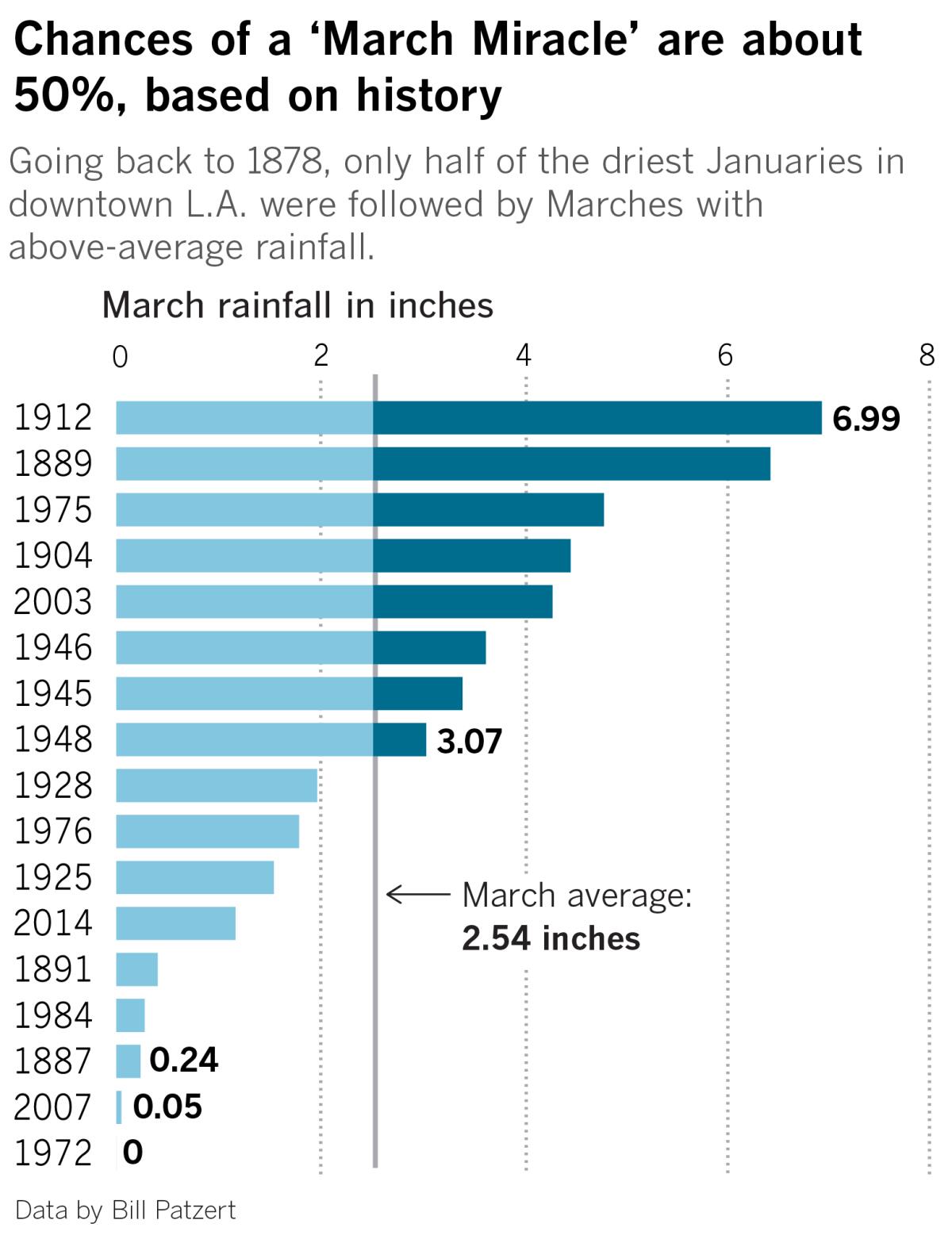
Patzert said that last month was the 18th-driest January for downtown Los Angeles going back to 1878, with 0.32 of an inch. The average for March in downtown is 2.54 inches. We don’t know how the 2020 rainfall year will turn out, but of the 17 dry Januaries with less than 0.32 of an inch of rain, only eight were followed by a March with above-average rain.
So we have about a 50% chance of a March Miracle.
“Pretty shaky, but hopeful,” Patzert said.
More to Read
Sign up for Essential California
The most important California stories and recommendations in your inbox every morning.
You may occasionally receive promotional content from the Los Angeles Times.
